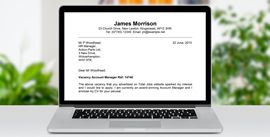How to Get a Big Pay Rise
You can share this report by clicking on the buttons below:
There are a number of factors that can affect whether you will get a big pay rise in your next job, or whether you'll just be on exactly the same salary or less!
Securing a pay rise can seem a daunting prospect, but it can be achieved with the right preparations beforehand. So, please read and then re-read this report carefully.
In this report, you'll discover how your CV / resume, interview preparations and salary negotiations can all affect your next salary.
1. Your CV / Resume Can Affect Whether You Get A Pay Rise
Most people don't realise how important their CV / resume is and how it can really affect their next salary. A good CV / resume should lead an employer through the successes in your career and tell them why they should employ you rather than all the other applicants.
It will reflect your true market worth, meaning that an employer will be much happier to offer you a pay rise.
Unfortunately, most people's CVs / resumes aren't as good as they can be. This can make it a real struggle to get interviews, and even if you do get an interview you will be fighting an uphill battle from the start.
At the interview stage your CV / resume will form the basis of an employer's questions. So, if it doesn't convey a highly favourable impression of you it will severely hamper your salary negotiations.
A good CV / resume can add 10%, 20%, 30% or more to your next salary, if it conveys your full market worth to an employer - so make sure your CV / resume is as good as it can possibly be.
So learn how to write a great CV if you want to get more interviews and boost your next pay rise. Plus, you may also want to see our CV Examples and CV Writing Advice section.
2. Prepare Thoroughly For The Interview
The impression you give of yourself at the interview will play a major part in determining whether you get a pay rise or not. Make sure that you are smartly dressed and well groomed - you need to look like you're worth the extra money.
You should prepare thoroughly beforehand for the interview itself. We'll just cover the salary aspects in this report. Answering Interview Questions is also covered on our website.
It's always a good idea to find out the salary range for the job you are applying for before the interview and also the salary range for similar jobs. Knowing the salary range will put you in a much better position during the salary negotiations.
If you are applying for the job through a recruitment agency, please ensure that you have talked to them before the interview about salary.
A lot of recruitment agencies are typically paid a percentage of your next salary as their fee by the employer - so it is in their interest for you to maximise your next salary.
Your recruitment consultant should have a good feeling for what the employer is willing to pay and how much you are likely to get based on your experience and skill-set.
3. What Benefits / Salary Package Can You Expect?
There are a number of components that make up your salary package - so there is often some room to negotiate.
As well as a basic salary you may also be able to negotiate bonuses if your performance is at a certain level, or benefits in kind, such as a company car, private health insurance, a company pension, etc.
Before you go to the interview make sure you know what is included in your current package and what they are worth. You will also want to think about what sort of package you are expecting from your next employer.
4. Perform Well At The Interview
To maximise your next salary you must ensure you perform well at the interview. At the interview itself make sure you state all your work related achievements - give these a lot of thought before the interview.
It is also very important to stress what you can do for your new employer. The more they feel they need you, the more they will be prepared to pay you.
If you are a specialist or a senior manager you may be able to negotiate a substantial bonus for a certain level of performance. Of course, you will have to achieve this level of performance to get your bonus!
5. The Actual Salary Negotiations
Negotiating your salary can be both a challenging and rewarding experience. A great deal of care is required when you are negotiating with a prospective employer.
It is best not to appear greedy; rather as someone who wants a fair level of pay for a fair day's work.
Negotiations may well flounder over your salary and a certain amount of tact, skill and diplomacy may be required to get the best deal for yourself.
If you've prepared beforehand for the salary negotiations, then you are far more likely to get a better deal.
You should already know the pay rate for the job, if you've done your interview preparations thoroughly and how much you personally are worth.
6. Checklist
You may have initially thought that securing a pay rise was difficult, but it can be achieved if you prepare properly.
- Make sure your CV is as good as it can be - you will get more interviews and this can really affect your next salary if it conveys your true worth to an employer.
- Prepare thoroughly for the interview itself, making sure you can tell an employer all the benefits of employing you, rather than all the other applicants.
- Ensure you know the salary range for the job before you have the interview and where you are likely to fit in this range.
- Always be tactful and diplomatic when you are negotiating your next salary.
Want to share this report?
You can share this report by clicking on the buttons below:






